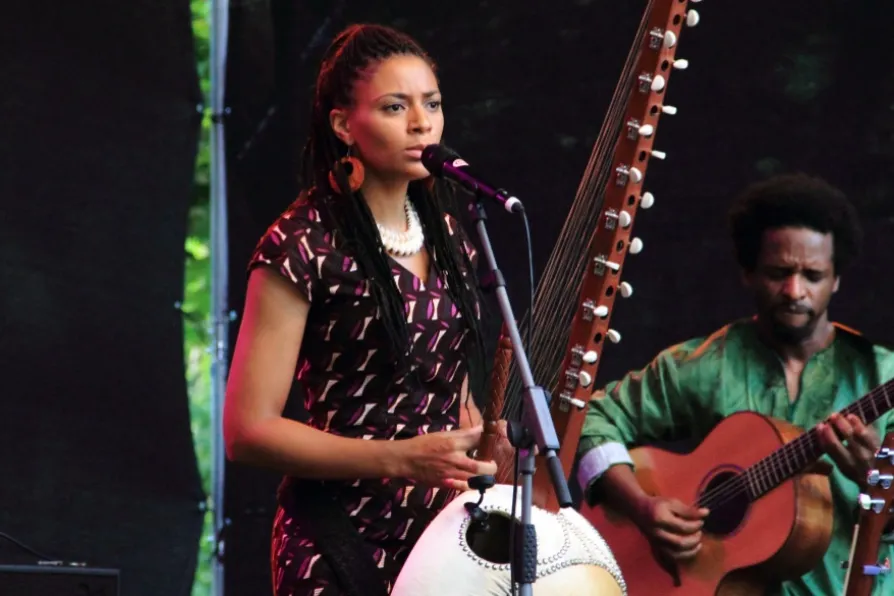Climate activist and writer JANE ROGERS introduces her new collection, Fire-ready, and examines the connection between life and fiction
Best of 2019: Music

 BREATHTAKING ASSURANCE: Sona Jobarteh
[Schorle]
BREATHTAKING ASSURANCE: Sona Jobarteh
[Schorle]
DESPERATE to see some live music on a trip to Ghana, I turned up at the open-air +233 Club in Accra one balmy evening, prepared to take in whoever was playing.
Similar stories

Chris Searle speaks to saxophonist XHOSA COLE and US tap-dancer LIBERTY STYLES

New releases by Samba Touré, Santrofi, and Piers Faccini & Ballake Sissoko

CHRIS SEARLE speaks to Rwanda-born jazz vocalist INEZA

CHRIS SEARLE speaks to Ghanaian trumpeter PETER SOMUAH










